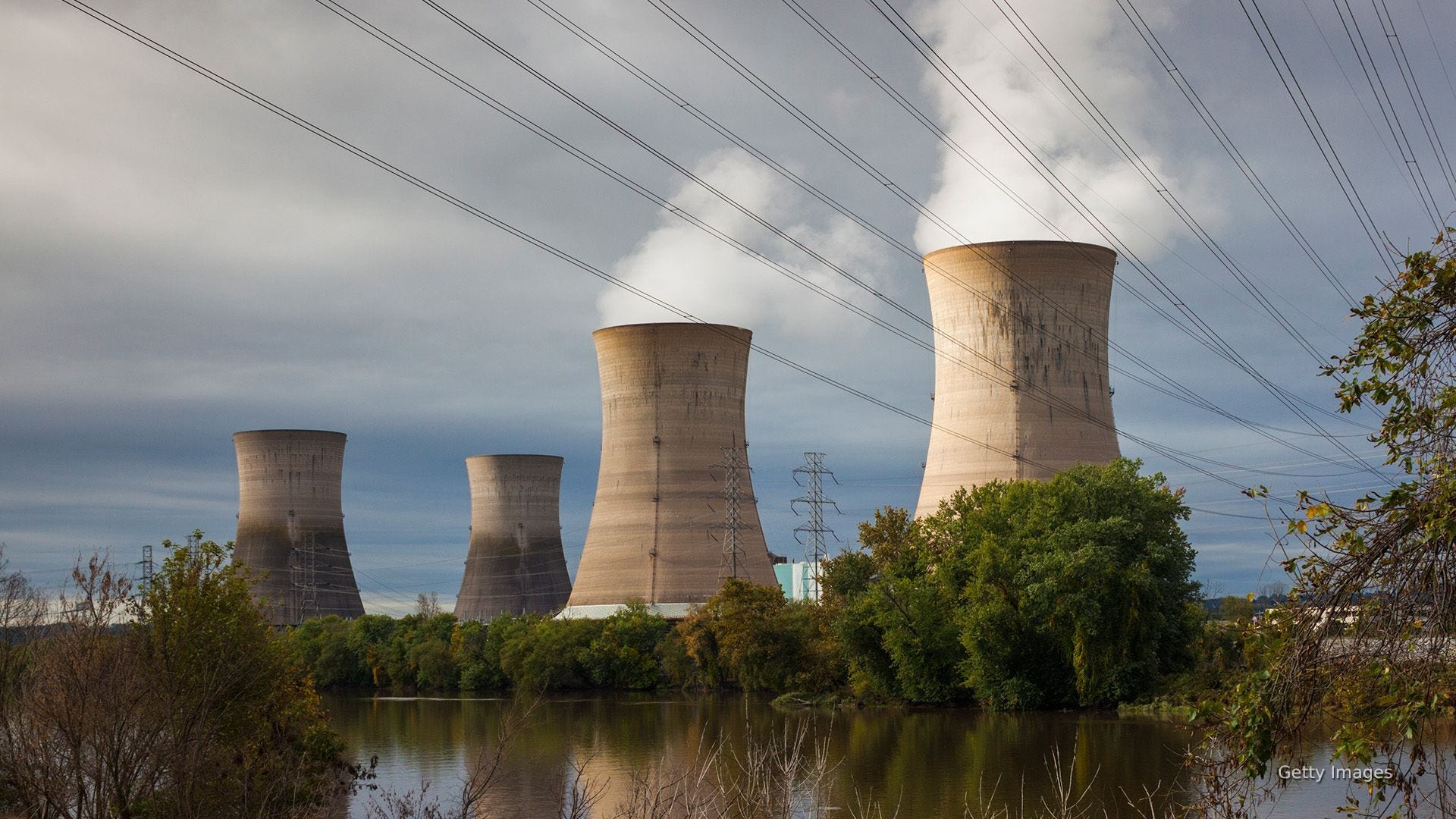Texas tells Supreme Court it shouldn't be 'left holding the bag' for US nuclear waste

WASHINGTON – The Supreme Court on Wednesday debated how to dispose of the nation’s nuclear waste as Texas tried to convince the justices to block a storage site near the state’s border with New Mexico.
Texas and a Texas-based oil and gas extraction organization argued the Nuclear Regulatory Commission lacked the authority to approve a site to store up to 5,000 metric tons of spent nuclear fuel for 40 years.
“If anyone thinks this is temporary, I have a bridge to sell you,” said Texas Solicitor General Aaron Nielson, referencing the old yarn about the Brooklyn Bridge. “What the commission has just done is put a permanent terrorist’s bullseye on the most productive oil field in the country.”
The federal government says the Texas plaintiffs are misreading the law in a way that would disrupt the nuclear power industry, which supplies about one-fifth of the nation’s electricity. Since 1980, the NRC has allowed on-site and off-site storage, said Malcolm Stewart, the Justice Department’s deputy solicitor general.
“That system allows a substantial role for private market responses to the country’s nuclear waste storage issues,” while ensuring the storage is safe, Stewart said.
How the dilemma landed in Supreme Court
Since the U.S. began large-scale nuclear power generation in the late 1950s, nuclear fuel has powered reactors along with an ongoing political debate over the disposal of spent fuel, once it can no longer efficiently generate electricity.
The "not in my backyard" dilemma ended up at the high court because the federal government never followed through on a 1982 law that was supposed to have created a permanent dumping ground for nuclear power plant waste – considered dangerous for thousands of years.
After lawmakers designed Nevada’s Yucca Mountain as the only authorized site for the Department of Energy to permanently store spent nuclear fuel, the Obama administration effectively nixed the project over political and environmental concerns.
“Yucca Mountain was supposed to be the permanent solution,” Justice Neil Gorsuch said. “We’ve spent something like $15 billion on it. It’s a hole in the ground.”
Justices question how 'temporary' the Texas site would be
Meanwhile, spent fuel continues to build up at nuclear facilities. More than 90,000 metric tons of high-level waste awaits disposal, according to the Government Accountability Office.
The federal government has turned to licensing private companies to store the spent fuel off-site, away from nuclear reactors, at sites that can remain operational for decades but are not supposed to remain there permanently.
Several justices questioned how "temporary" the site would be.
Stewart, the federal government’s attorney, said the amount of time the waste would stay at the proposed facility in Texas unless a permanent solution is found is the same amount of time the waste would be at decommissioned reactors unless moved to the proposed facility.
“We're going to confront that dilemma at some locations within the country,” he said. “It's just a question of where those locations will be.”
The company proposing to run the facility argues it's more economical to have security in one centralized location, which also allows time for the land around former nuclear reactors to be restored for long-term use.
Will Texas be left 'holding the bag'?
The government said it's permitted to approve such facilities under the Atomic Energy Act of 1954 – an authority it says has been undisputed for decades.
But Texas argues the 1982 law takes precedence, even if it hasn’t resulted in a permanent site.
Nielson, the state’s solicitor general, said Congress won’t have an incentive to follow through on the law if the private, off-site facilities are allowed.
“If New Mexico and Texas are left holding the bag, every other state will be happy. They will be pleased because this waste will stay in Texas forever,” he said.
But it’s on Congress – not the Nuclear Regulatory Commission – to impose a national solution, Nielson added.
Justice Sonia Sotomayor said the U.S. has run out of other options, adding that it’s not the court’s role to try to force Congress to act by blocking the Texas site.
“When are we in the business of giving Congress incentives?” she asked.
While two federal appeals courts rejected challenges to the private facility, the New Orleans-based 5th U.S. Circuit Court of Appeals sided with Texas. The court has also blocked a similar site in New Mexico that officials in that state oppose.
A decision is expected by the end of June.
Contributing: Davis Winkie and Bart Jansen.